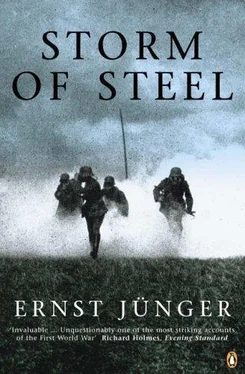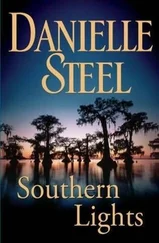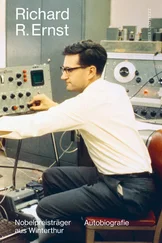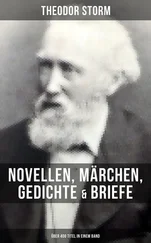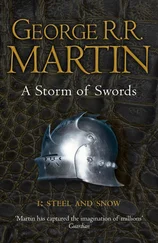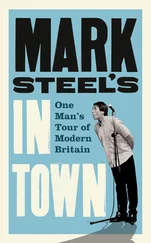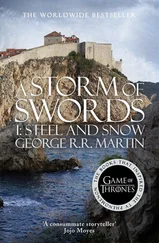At last, the longed-for order. In a long line, we moved forward, towards the pattering of heavy rifle fire. It was getting serious. To the side of the forest path, dull thumps came down in a clump of firs, bringing down a rain of branches and soil. One nervous soldier threw himself to the ground, while his comrades laughed uneasily. Then Death’s call slipped through the ranks: ‘Ambulancemen to the Front!’
A little later, we passed the spot that had been hit. The casualties had already been removed. Bloody scraps of cloth and flesh had been left on bushes around the crater – a strange and dreadful sight that put me in mind of the butcher-bird that spikes its prey on thorn bushes.
Troops were advancing at the double along the Grande Tranchee. Casualties huddled by the roadside, whimpering for water, prisoners carrying stretchers came panting back, limbers clattered through fire at a gallop. On either side, shells spattered the soft ground, heavy boughs came crashing down. A dead horse lay across the middle of the path, with giant wounds, its steaming entrails beside it. In among the great, bloody scenes there was a wild, unsuspected hilarity. A bearded reservist leaned against a tree:
‘On you go now, boys, Frenchie’s on the run!’
We entered the battle-tramped realm of the infantryman. The area round the jumping-off position had been deforested by shells. In the ripped-up no man’s land lay the victims of the attack, still facing the enemy; their grey tunics barely stood out from the ground. A giant form with red, blood-spattered beard stared fixedly at the sky, his fingers clutching the spongy ground. A young man tossed in a shell-crater, his features already yellow with his impending death. He seemed not to want to be looked at; he gave us a cross shrug and pulled his coat over his head, and lay still.
Our marching column broke up. Shells came continually hissing towards us in long, flat arcs, lightnings whirled up the forest floor. The shrill toot of field artillery shells I had heard quite often even before Orainville; it didn’t strike me as being particularly dangerous. The loose order in which our company now advanced over the broken field had something oddly calming about it; I thought privately that this baptism of fire business was actually far less dangerous than I’d expected. In a curious failure of comprehension, I looked alertly about me for possible targets for all this artillery fire, not, apparently, realizing that it was actually ourselves that the enemy gunners were trying for all they were worth to hit.
‘Ambulancemen!’ We had our first fatality. A shrapnel ball had ripped through rifleman Stoker’s carotid artery. Three packets of lint were sodden with blood in no time. In a matter of seconds he had bled to death. Next to us, a couple of ordnance pieces loosed off shells, drawing more fire down on us from the enemy. An artillery lieutenant, who was in the vanguard, looking for wounded, was thrown to the ground by a column of steam that spurted in front of him. He got to his feet and made his way back with notable calm. We took him in with gleaming eyes.
It was getting dark when we received orders to advance further. The way now led through dense undergrowth shot through by shells, into an endless communication trench along which the French had dropped their packs as they ran. Approaching the village of Les Eparges, without having any troops in front of us, we were forced to hew defensive positions in solid rock. Finally, I slumped into a bush and fell asleep. At moments, half asleep, I was aware of artillery shells, ours or theirs, describing their ellipses in a trail of sparks.
‘Come on, man, get up! We’re moving out!’ I woke up in dew-sodden grass. Through a stuttering swathe of machine-gun fire, we plunged back into our communication trench, and moved to a position on the edge of the wood previously held by the French. A sweetish smell and a bundle hanging in the wire caught my attention. In the rising mist,
I leaped out of the trench and found a shrunken French corpse. Flesh like mouldering fish gleamed greenishly through splits in the shredded uniform. Turning round, I took a step back in horror: next to me a figure was crouched against a tree. It still had gleaming French leather harness, and on its back was a fully packed haversack, topped by a round mess-tin. Empty eye-sockets and a few strands of hair on the bluish-black skull indicated that the man was not among the living. There was another sitting down, slumped forward towards his feet, as though he had just collapsed. All around were dozens more, rotted, dried and stiffened to mummies, frozen in an eerie dance of death. The French must have spent months in the proximity of their fallen comrades, without burying them.
During the morning, the sun gradually pierced the fog, and spread a pleasant warmth. After I’d slept on the bottom of the trench for a while, curiosity impelled me to inspect the unoccupied trench we’d captured the day before. It was littered with great piles of provisions, ammunition, equipment, weapons, letters and newspapers. The dugouts were like looted junk-shops. In amongst it all were the bodies of the brave defenders, their guns still poking out through the shooting-slits. A headless torso was jammed in some shot-up beams. Head and neck were gone, white cartilage gleamed out of reddish-black flesh. I found it difficult to fathom. Next to it a very young man lay on his back with glassy eyes and fists still aiming. A peculiar feeling, looking into dead, questioning eyes – a shudder that I never quite lost in the course of the war. His pockets had been turned inside out, and his emptied wallet lay beside him.
Unmolested by any fire, I strolled along the ravaged trench. It was the short mid-morning lull that was often to be my only moment of respite on the battlefield. I used it to take a good look at everything. The unfamiliar weapons, the darkness of the dugouts, the colourful contents of the haversacks, it was all new and strange to me. I pocketed some French ammunition, undid a silky-soft tarpaulin and picked up a canteen wrapped in blue cloth, only to chuck it all away again a few steps further along. The sight of a beautiful striped shirt, lying next to a ripped-open officer’s valise, seduced me to strip off my uniform and get into some fresh linen. I relished the pleasant tickle of clean cloth against my skin. Thus kitted out, I looked for a sunny spot in the trench, sat down on a beam-end, and with my bayonet opened a round can of meat for my breakfast. Then I lit my pipe, and browsed through some of the many French magazines that lay scattered about, some of them, as I saw from the dates, only sent to the trenches on the eve of Verdun.
Not without a certain shudder, I remember that during my breakfast I tried to unscrew a curious little contraption that I found lying at my feet in the trench, which for some reason I took to be a ‘storm lantern’. It wasn’t until a lot later that it dawned on me that the thing I’d been fiddling around with was a live hand-grenade.
As conditions grew brighter, a German battery opened up from a stretch of woods just behind the trench. It didn’t take long for the enemy to reply. Suddenly I was struck by a mighty crash behind me, and saw a steep pillar of smoke rising. Still unfamiliar with the sounds of war, I was not able to distinguish the hisses and whistles and bangs of our own gunnery from the ripping crash of enemy shells, and hence, to get a sense of the lines of engagement. Above all, I could not account for the way I seemed to be under fire from all sides, so that the trajectories of the various shells were criss-crossing apparently aimlessly over the little warren of trenches where a few of us were holed up. This effect, for which I could see no cause, disquieted me and made me think. I still viewed the machinery of conflict with the eyes of an inexperienced recruit – the expressions of bellicosity seemed as distant and peculiar to me as events on another planet. This meant I was unafraid; feeling myself to be invisible, I couldn’t believe I was a target to anyone, much less that I might be hit. So, returned to my unit, I surveyed the terrain in front of me with great indifference. In my pocket-diary I wrote down – a habit of mine later on as well – the times and the intensity of the bombardment.
Читать дальше
